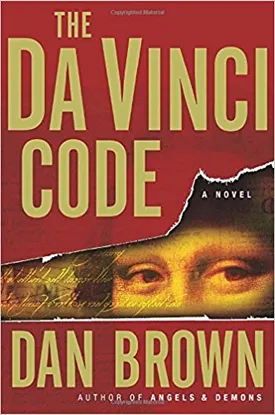Dan Brown
Dan Brown is one of the most prolific and successful authors of the modern era, boasting a writing career that has spanned over two decades. His books seamlessly blend action and intrigue with the intellectual adventure of exploring complex themes in history, religion, and science. Brown’s books have been translated into 56 different languages and have sold over 200 million copies worldwide.
Dan Brown was born on June 22, 1964, in Exeter, New Hampshire. He was raised in a traditional New England family with a lawyer father and a deeply religious mother. Growing up, Brown developed a deep love for music, art, and the written word. After graduating from Phillips Exeter Academy in 1982, Dan Brown pursued his dream of becoming a singer and songwriter. He spent the next several years traveling between London and Los Angeles, writing songs, and performing on stages around the world.
In 1993, Brown shifted focus from his music career and enrolled at Amherst College to pursue a degree in English and Spanish Literature. During his time at Amherst, Brown found much success in writing, earning him both an award for best fiction writing and a National Literary Honor Society nomination. After graduating in 1986, Brown turned his writing skills towards teaching and began working at his alma mater, Phillips Exeter Academy. It was at Phillips Exeter Academy where Dan Brown discovered his passion for writing thrillers.
Dan Brown’s debut was the techno-thriller “Digital Fortress” in 1998, a story of a brilliant mathematician and former National Security Agency employee seeking to release a potent piece of uncrackable coding software to the world. Digital Fortress made the New York Times bestseller list and was the perfect introduction to Dan Brown’s work.
It wasn’t until 2003, however, that Dan Brown would truly achieve international fame with “The Da Vinci Code.” This novel achieved immense success, topping the New York Times bestseller lists for the majority of 2003. “The Da Vinci Code” follows the story of Harvard symbologist Robert Langdon, who is tasked to investigate what appears to be a murder at the Louvre Museum in Paris. As the clues become more complex and the story develops, we are taken on a high-stakes scavenger hunt throughout Europe, following Langdon and his companion as they uncover a series of hidden symbols and ancient secrets. The novel also explores science and religion, delving into their often opposing forces.
Following the success of The Da Vinci Code, Dan Brown spun off into “The Robert Langdon series,” which includes four novels released to date. The other novels in the series include the best-selling titles “Angels & Demons,” “The Lost Symbol,” and “Inferno.” The novels all follow the same formula of crime and intrigue, centering around Robert Langdon’s efforts to uncover hidden secrets.
In addition to the four Langdon novels, Dan Brown has written the two non-Langdon novels: “Deception Point” and “Origins.” The former follows the harrowing adventures of an intelligence analyst as she seeks to exonerate a NASA satellite program, while the latter is a global adventure through ancient history, mixing scientific revolution with conspiracy.
Aside from creating works of fiction, Dan Brown has also been actively involved in philanthropy. He has donated hundreds of millions of dollars to charitable organizations, including medical charities and art conservation charities. He also donates a significant amount of his book proceeds to charity.
Dan Brown continues to find success across the world. His books have been adapted into films, attracting both critical and commercial success. With a combination of spell-binding thrillers and thought-provoking science and religion stories, Dan Brown has cemented himself as one of the most influential authors of the 21st century.

